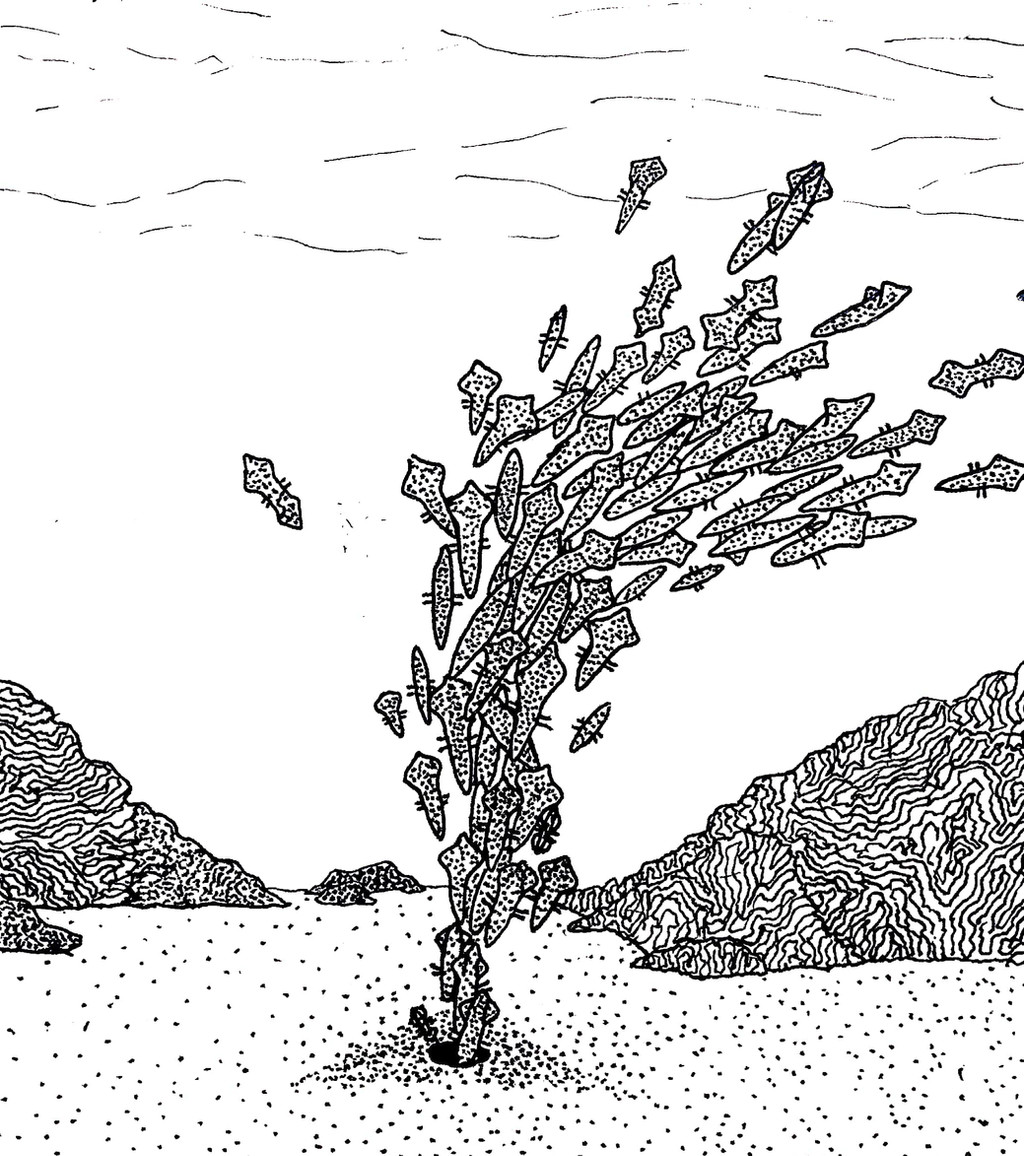HOME | DD
 doublejota — Adaptation
doublejota — Adaptation

#alien #alienlife #alienplanet #alienworld #astrobiology #exobiology #nature #sea #sealife #speculativeevolution #speculativebiology #speculativezoology
Published: 2019-04-25 11:18:31 +0000 UTC; Views: 2178; Favourites: 47; Downloads: 0
Redirect to original
Description
Polinices experiences ups and downs of sea of tens of meters in a few hours. In fact, a small sea (Seppi Mare) almost completely empties during low tide. This situation has forced marine organisms to take extreme measures to survive the tidal changes. In the case of the species of the genus Diitchtys that inhabit the shallow waters near the coast, they have found a solution to the problem by building burrows several meters deep. With the arrival of low tide, they enter them and starts a state of ¨hibernation¨ to cope with the lack of oxygen.
In the image, a school of Diitchtys teuthiformis rush to crawl into the burrow after tracing the reef for preys.
Related content
Comments: 4

Looking forward to seeing what other tidal adaptations the life of this planet has. I imagine land animals must have to know not to stray too far into the intertidal zone, because the tide would rush in faster and they'd have more distance to clear to get away from it. I wonder how it would affect the land too such as erosion and sediment buildup?
👍: 0 ⏩: 1

Of course. I will talk about it in the future. thanks for the comment
👍: 0 ⏩: 0



























